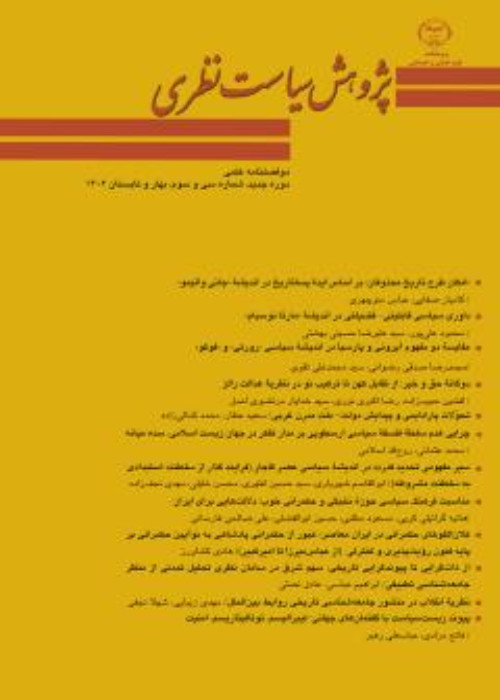Dworkin and intergenerational justice problems: An introduction to theory of intergenerational equality of recourses
Abstract:
Theories of justice are bound to look at the future when it comes to outline the requirements of justice. Intergenerational concerns that have been aggravated by environmental problems and natural resource depletion have brought out new issues including the realm, pattern, and criterion of intergenerational justice. Although Dworkin has not discussed independently about intergenerational justice, the theory of equality in resources, providing uniform images of values of human societies such as justice, has the capability to respond to these issues. The principles of independence and Interpretation of values, together with the specific interpretation of rights, make it possible provide the theory of intergenerational equality of resources using the deconstruction method. This theory is individualistic considering all future generations along with preserving the human dignity of everyone. This goal is achieved by observing the two principles: first, it must show equal concern for the fate of every person throughout the ages. Second, it must respect equally the personal responsibilities of each person towards their lives.
Keywords:
Language:
Persian
Published:
Research in Theoretical Politics, Volume:12 Issue: 21, 2017
Page:
117
magiran.com/p1729864
دانلود و مطالعه متن این مقاله با یکی از روشهای زیر امکان پذیر است:
اشتراک شخصی
با عضویت و پرداخت آنلاین حق اشتراک یکساله به مبلغ 1,390,000ريال میتوانید 70 عنوان مطلب دانلود کنید!
اشتراک سازمانی
به کتابخانه دانشگاه یا محل کار خود پیشنهاد کنید تا اشتراک سازمانی این پایگاه را برای دسترسی نامحدود همه کاربران به متن مطالب تهیه نمایند!
توجه!
- حق عضویت دریافتی صرف حمایت از نشریات عضو و نگهداری، تکمیل و توسعه مگیران میشود.
- پرداخت حق اشتراک و دانلود مقالات اجازه بازنشر آن در سایر رسانههای چاپی و دیجیتال را به کاربر نمیدهد.
In order to view content subscription is required
Personal subscription
Subscribe magiran.com for 70 € euros via PayPal and download 70 articles during a year.
Organization subscription
Please contact us to subscribe your university or library for unlimited access!



